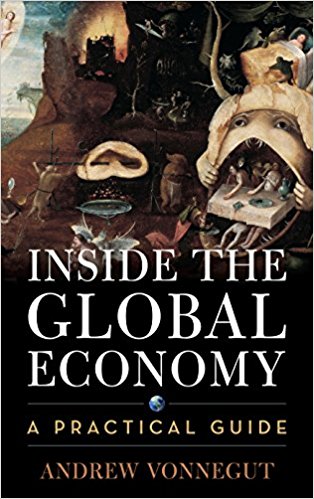From Andrew Vonnegut and WEA Commentaries My work over almost 20 years would have pegged me as a pretty mainstream economist. I worked in company and market due diligence and risk analysis in emerging markets finance, then for two large international consulting firms in emerging markets policy advisory. A regular, mainstream, practicing economist. Then I returned to the United States, started teaching a global economics class, and looked for a text. Like my texts 25 years ago, materials were largely locked into a Samuelson definition and optimization framework, with full chapters devoted to expositions of and extensions on the Heckscher-Ohlin and Rybczynski theorems. The skirmish between mainstream and heterodox economics might have another dog in the fight, or at least one quietly
Topics:
Editor considers the following as important: Uncategorized
This could be interesting, too:
tom writes The Ukraine war and Europe’s deepening march of folly
Stavros Mavroudeas writes CfP of Marxist Macroeconomic Modelling workgroup – 18th WAPE Forum, Istanbul August 6-8, 2025
Lars Pålsson Syll writes The pretence-of-knowledge syndrome
Dean Baker writes Crypto and Donald Trump’s strategic baseball card reserve
from Andrew Vonnegut and WEA Commentaries
 My work over almost 20 years would have pegged me as a pretty mainstream economist. I worked in company and market due diligence and risk analysis in emerging markets finance, then for two large international consulting firms in emerging markets policy advisory. A regular, mainstream, practicing economist.
My work over almost 20 years would have pegged me as a pretty mainstream economist. I worked in company and market due diligence and risk analysis in emerging markets finance, then for two large international consulting firms in emerging markets policy advisory. A regular, mainstream, practicing economist.
Then I returned to the United States, started teaching a global economics class, and looked for a text. Like my texts 25 years ago, materials were largely locked into a Samuelson definition and optimization framework, with full chapters devoted to expositions of and extensions on the Heckscher-Ohlin and Rybczynski theorems. The skirmish between mainstream and heterodox economics might have another dog in the fight, or at least one quietly lurking nearby: practitioners in need of useful information and frameworks. Unrepentant Laffer disciples aside, are practitioners driven outside the mainstream in a quest for actionable insight?
Learning the traditional optimization based foundations of the discipline can be beneficial, in particular for students continuing in economics. But, lots of people taking classes are not on an academic track, whether students in undergrad economics programs, business schools, global studies or public policy programs, or as journalists or just curious people. The latter are my students. They need to learn what the global economy looks like, start asking the right questions, and develop a basic, but broad framework for deriving and understanding the merits of different answers. They don’t need to graph the HO theorem. I did that, and it never helped me solve any problems.
So, like many other members of the WEA, I developed my own class materials (then turned them into a book). The themes that I hope will give students a useful background don’t seem anything but mainstream in the practitioner’s world, but many are left out of a traditional economics education. Here are some examples. read more
